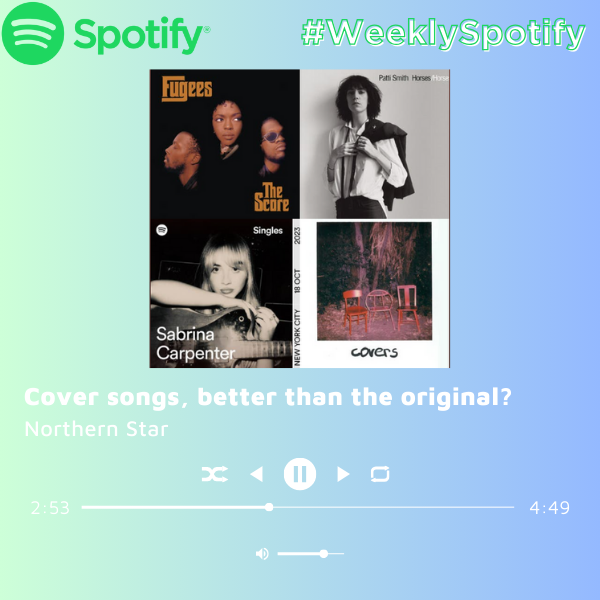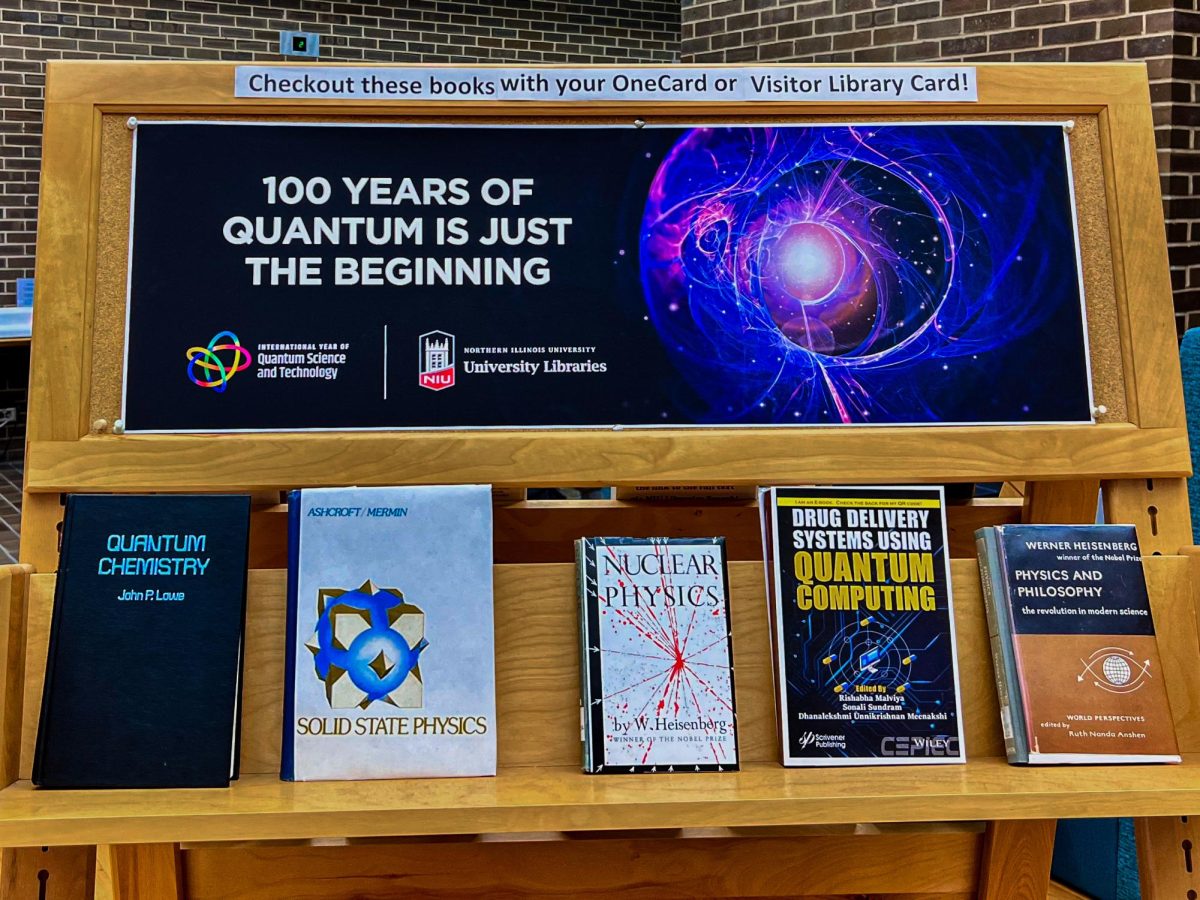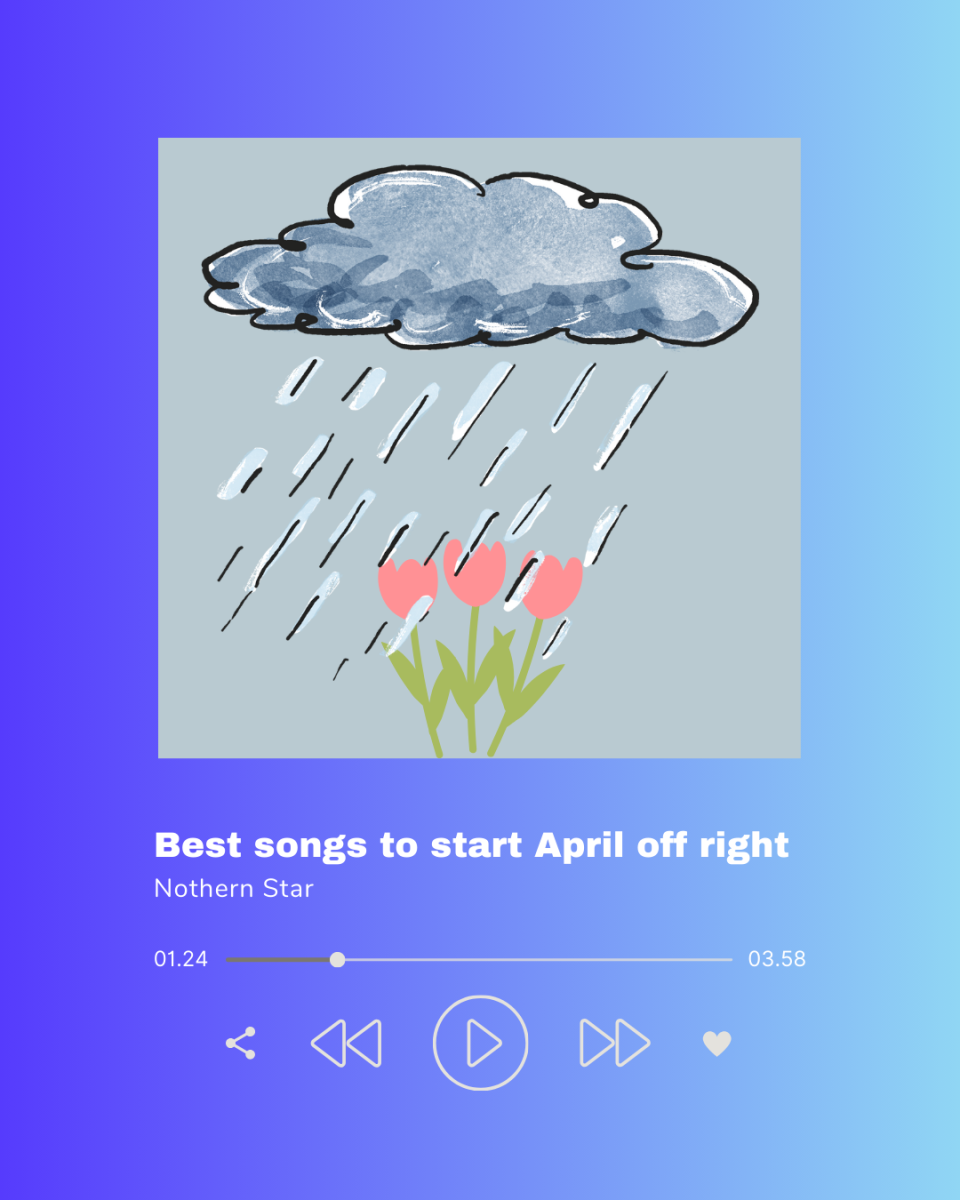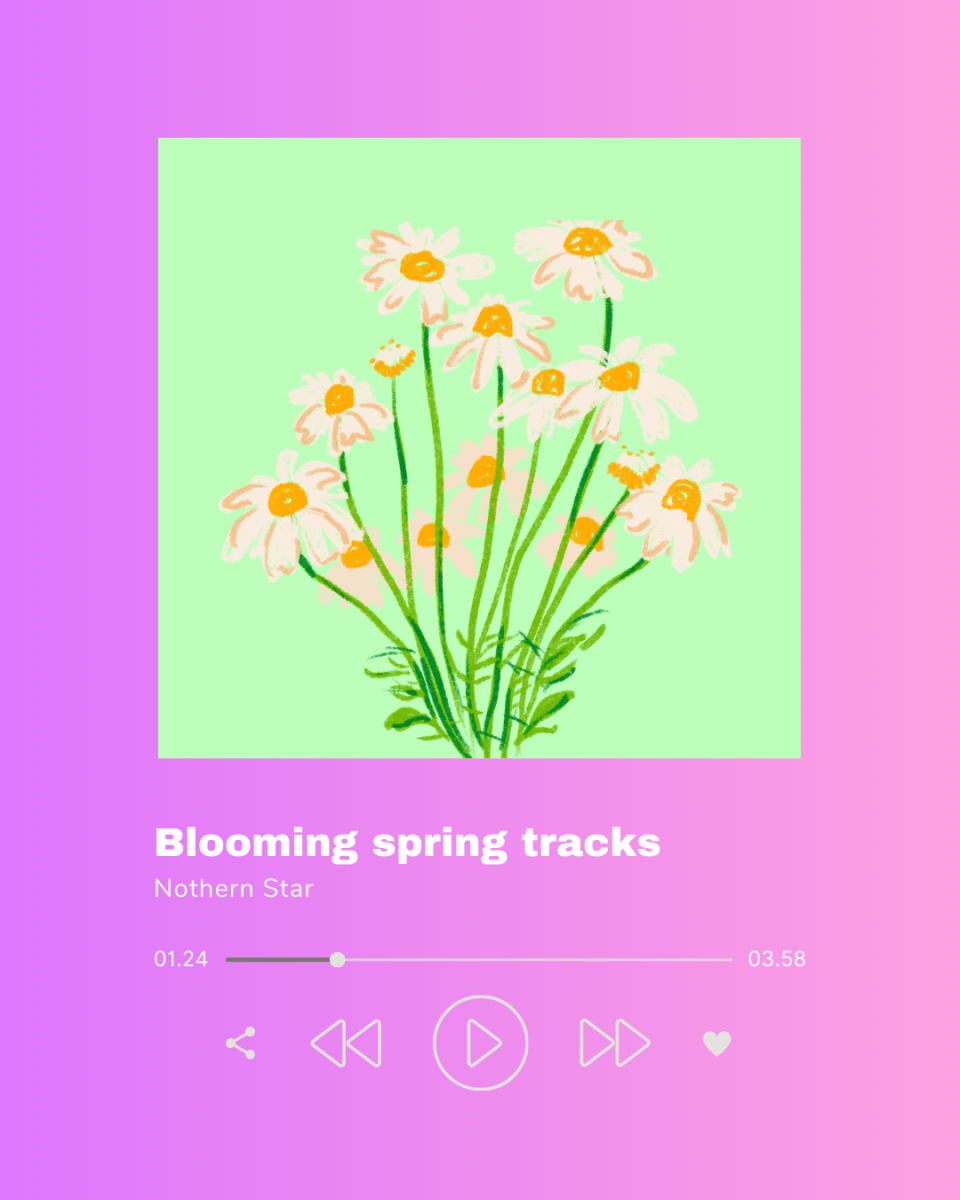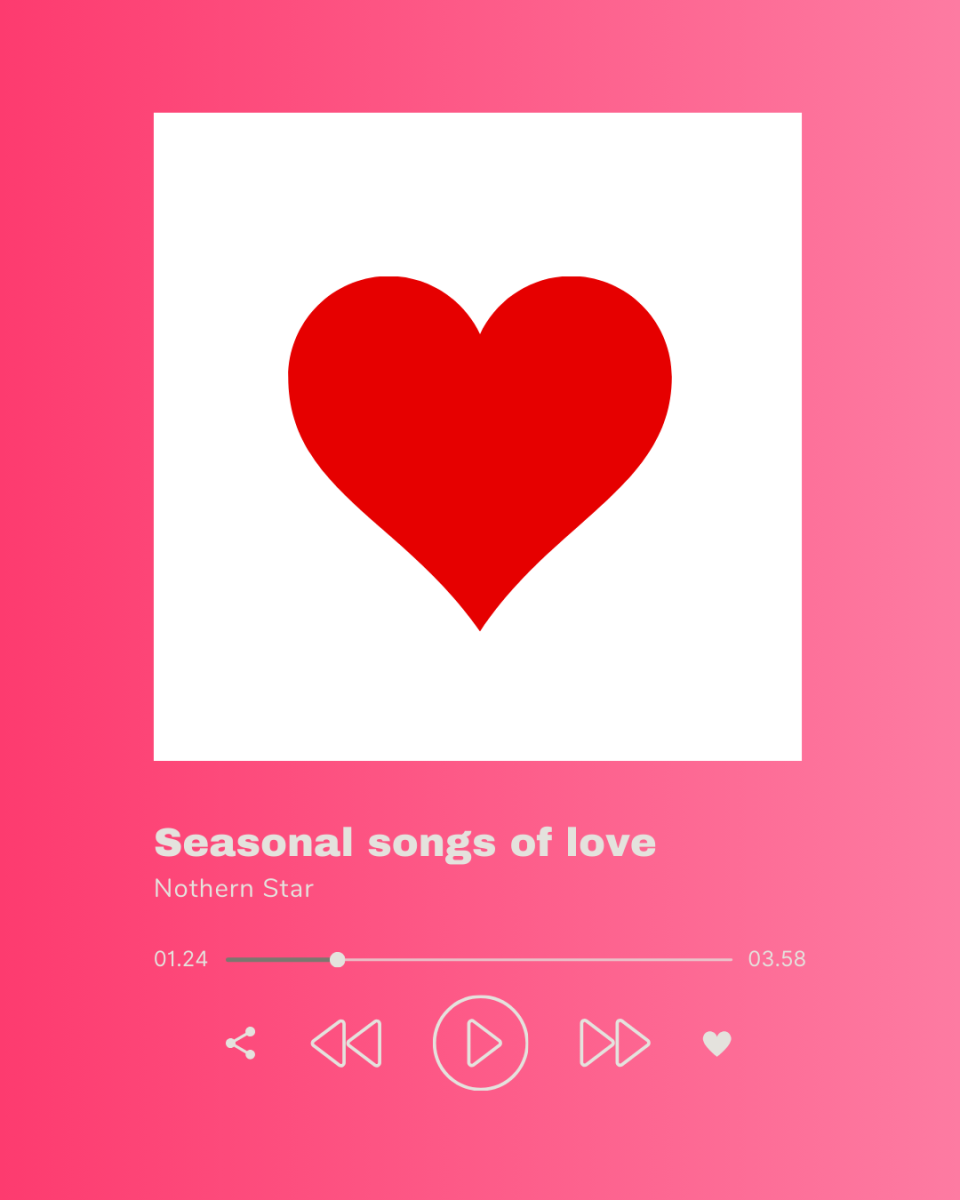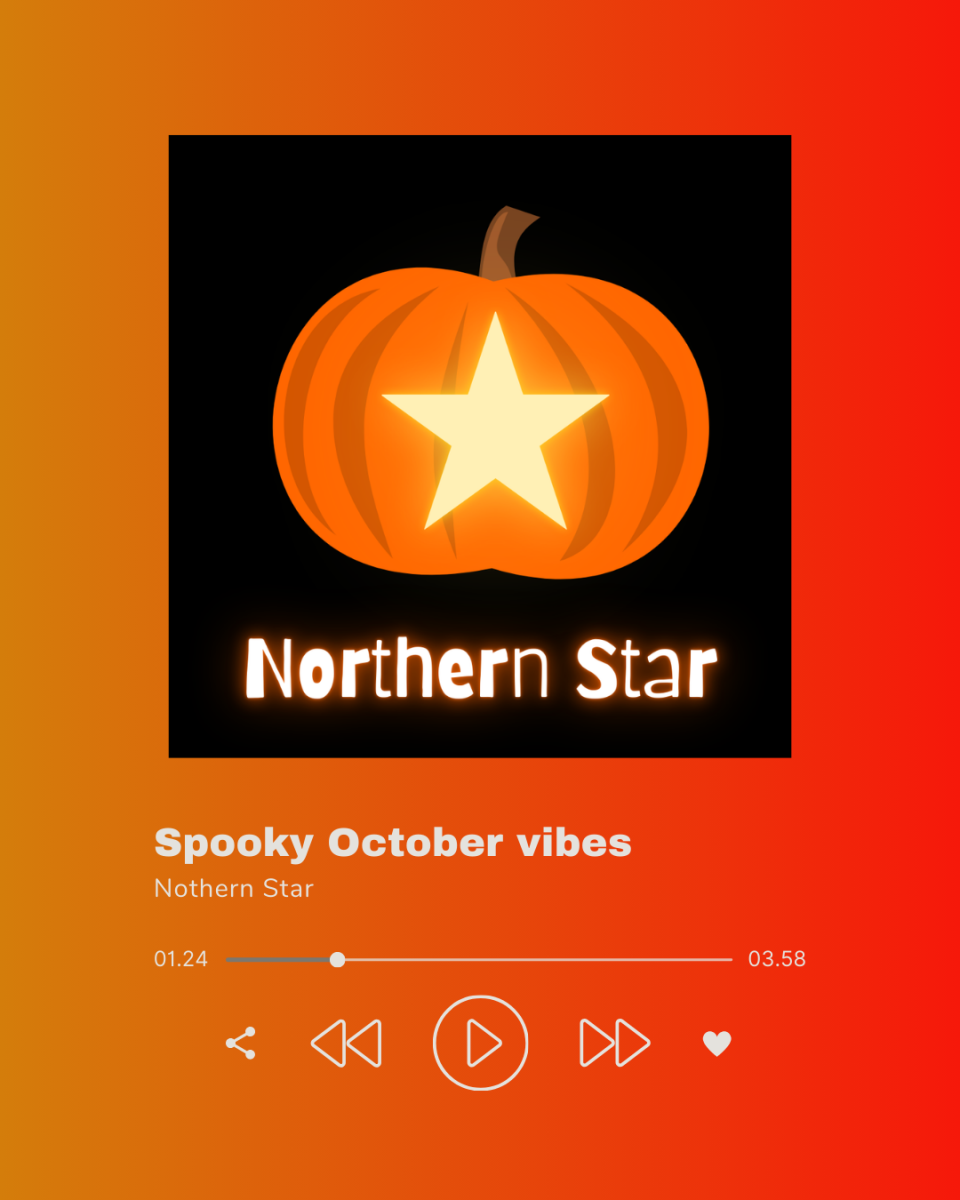For some spice and surprising changes, take a listen to some of these cover songs of well-known tracks.
Nick’s picks:
- Fugees – “Killing Me Softly With His Song”
- Patti Smith – “Gloria”
- The Wild Reeds – “I Think We’re Alone Now”
Because of Lauryn Hill’s performance on the hook, for many years, I swore “Killing Me Softly With His Song” was a song written by Fugees – a trio of Hill, Wyclef Jean and Pras. Knowing that the Fugees are the third artist to garner acclaim with the song was groundbreaking knowledge. Written by Lori Lieberman, who first popularized the song, Norman Gimbel and Charles Fox, the track was truly brought to masterpiece status with Roberta Flack’s quiet, funky cover. At first, Flack’s version and Fugees’ version are similar. Simple vocal lines start both tracks, but the Fugees’ version shows its difference when the beat kicks in. With a combo of Hill’s vocal excellence and rapping skill by the trio as a whole, “Killing Me Softly With His Song” is an absolute bop.
Originally written by Van Morrison and performed by his band Them, “Gloria” is my favorite performance by punk icon and pioneer Patti Smith. The beginning with its repetitive piano and Smith’s listless voice quickly picks up the pace with a hard strummed guitar and simple drums. As the song gains energy, Smith’s punk vibe starts to emerge. The third verse takes this energy and melts it into a pot of frenetic furore. As the chorus kicks off, Smith yells “G-L-O-R-I-A,” the only lyrics pulled from Van Morrison’s original track. The headbanging fervor of this chorus is full of the vigor in early punk. Smith differs from her proto-punk counterparts in two ways: one, she’s actually good at her instrument, and two, her lyrics are poetic and interesting. “Gloria” is the perfect intro to early punk – and the perfect cover song.
I found The Wild Reeds a few years ago during a late night deep dive through NPR Tiny Desk Concerts’ back catalog. The first song of their concert was “Where I’m Going,” and it was absolutely captivating. While most of the band’s released music is missing the special pixie dust of its NPR performance, its cover of Tiffany’s “I Think We’re Alone Now” captures that magic. The “Gilmore Girls” sounding intro invites a new meaning from the song. While the original track is fun, young and poppy, The Wild Reeds make the song reflective and nostalgic. The trio’s voices meld together in simplistic orchestration of vocals and quiet acoustic guitar. With an almost ambient tranquility, The Wild Reeds make the song feel like a dark, starry night and early morning sunrise at the same time.
Tamya’s picks:
- Sabrina Carpenter – “I Knew You Were Trouble”
- James Blake – “Godspeed”
- Whitney Houston – “I Will Always Love You”
“I Knew You Were Trouble” was originally released by pop royalty Taylor Swift. However, Sabrina Carpenter, as the opener for the international legs of the “Eras Tour,” recently released a cover of the coveted song. The slowed down mellow version that Carpenter sings is a stark difference from Swift’s version. Swift’s version relies on belting high notes and a pop rock influence to the melody. Carpenter’s is quite different as she turns the song into a ballad, but you are able to appreciate the lyricism and musicality of the song. Her soft voice dances on the beat as she uses a more reserved, soft version of her voice to deliver this beautiful rendition.
“Godspeed” was originally released by Frank Ocean on his album, “Blonde.” However, James Blake’s rendition of the song is better than the original. Blake’s version completely strips the song back to a singular piano and his soulful raspy voice. The singer’s beautiful voice fits effortlessly with the song, allowing you to not realize it is not the original. Blake’s version of the song carries a heavier darker effect that bears so many emotions to the listener. His lack of pronunciation carries the song in comparison with the original. The run on adds to the emotion while the clear concise original version conveys a more uplifting sound.
“I Will Always Love You” by Whitney Houston is one of the most beloved cover songs of all time. Whitney’s soulful voice covers the track originally by country phenomenon, Dolly Parton, who has said the song is now rightfully Whitneys’. Originally, the song was produced for Houston’s role in the film “The Bodyguard.” The song fit her voice perfectly and is also one of the most vocally challenging songs that solidified Houston as one of the greatest singers of all time. The song holds a nostalgic presence that is accompanied by the powerful croons of Ms. Houston. This song is attached to Houston’s legacy.
Jonathan’s picks:
- “Get Lucky” – Flash Mob Jazz
- “One More Time” – London Elektricity Big Band
- “Time is on My Side” – Rolling Stones
The song “Get Lucky” has been performed by many different artists, and Flash Mob Jazz in particular gives it more of a harmonious and lighthearted tone. The song, originally performed by the group Daft Punk, had more of a solid tone to it; however, Flash Mob Jazz performs the song using a softer tone. The group also makes use of its numbers and, instead of having a single vocalist, sings as a collective throughout different parts of the song. Even with these changes, the song still has elements of the original version.
Going with another one of Daft Punk’s iconic melodies, its song “One More Time” was performed by the London Elektricity Big Band in a live concert. This version of the song is a faster and more energetic version of the original with a collection of instruments like the trombone and saxophone. The band also gives the song more of a swing melody that is further enhanced by the merry tone of the singers.
“Time is on my side” is one of the Rolling Stones’ most popular cover songs. It was originally performed by Kai Winding and backing vocals done by Cissy Houston, Dionne Warwick, and Dee Dee Warwick in 1963. The difference between the two songs is the heavy use of more current instruments like the guitar by the Rolling Stones while Winding heavily uses the piano. The Rolling Stones’ version of the lyrics are smooth and work well alongside the other instruments.
Caleb’s picks:
- Lydia the Bard – “Poor Unfortunate Souls”
- Panic! At The Disco – “Into the Unknown”
- Glee Cast – “Defying Gravity”
This song was originally released in Disney’s 1989 classic film “The Little Mermaid,” and is the main song of the movie’s villain Ursula. For this cover of “Poor Unfortunate Souls,” I chose a cover by independent music artist Lydia the Bard. Bard is known for her groundbreaking vocal performances and her covers of Disney villains and princesses. In this rendition of “Poor Unfortunate Souls,” she provides captivating vocals that both pays homage to Pat Carol’s original version of the song and also adds a fresh new sound to the piece.
Panic! At The Disco’s Brandon Urie provides a stunning performance and highlights his powerful vocal skills in this delightful show tune from Disney’s Frozen II. “Into the Unknown” provides powerful energetic beats that are perfect getting into a dancing mood. While the original performance by Idina Menzel is still iconic, I enjoyed the contrast of hearing a male vocals in the piece. Another thing I really enjoyed about this cover is Urie’s voice seems very well suited for this song, and his vocal range matches the beat drop and tempo of “Into the Unknown” perfectly.
The cast of Glee is well known for covering a wide range of songs throughout its history. Of these performances one of my absolute favorites is a cover of “Defying Gravity” by Kurt Hummel, played by Chris Colfer, and Rachel Berry, played by Lea Michele. Originally from the musical “Wicked,” the song was sung by Idina Menzel and Kristen Chenoweth. I thought both Colfer and Michele honored the original seamlessly, and I enjoyed both actors’ performances. The duo did a phenomenal job hitting the song’s high notes and kept up with the upbeat and energetic tempo. Another reason I find this song choice to be iconic is that both Menzel and Chenoweth appeared as characters in the show, which really just brings everything full circle for me.
Ibrahim’s picks:
- Burna Boy – “Ye”
- Wizkid – “Ojuelegba” ft Drake
- Omawumi – “Hello”
“Ye” is a song by Nigerian artist Burna Boy. Although it shares the same title as Kanye West’s album, it is not a direct cover of Kanye West’s song. Burna Boy’s “Ye” has its own unique lyrics and production. However, Burna Boy has acknowledged that the title of his song was inspired by Kanye West’s album and song. Burna Boy’s “Ye” became a massive hit and gained international recognition, contributing to his rise in popularity. The song showcases Burna Boy’s Afrobeat style and lyrical prowess, addressing themes of self-reflection and personal growth.
“Ojuelegba” is a song by Nigerian artist Wizkid. It gained significant attention and recognition after Canadian rapper Drake released a remix of the song in 2015. The original version of “Ojuelegba” by Wizkid was released in 2014 as part of his album “Ayo.” The song is named after a neighborhood in Lagos, Nigeria, where Wizkid grew up. It tells the story of his humble beginnings, struggles and aspirations. The song gained popularity in Nigeria and across Africa for its infectious Afrobeat rhythm and heartfelt lyrics. Drake’s remix of “Ojuelegba” helped introduce the song to a wider international audience. Drake’s verse in the remix paid homage to Wizkid and his music, further boosting the popularity of the track. The collaboration between Wizkid and Drake opened doors for more international collaborations and opportunities for Wizkid, solidifying his status as one of Africa’s most successful artists.
Omawumi’s cover of “Hello” is a rendition of the original song by Adele. Omawumi is a Nigerian singer-songwriter known for her powerful vocals and captivating performances. In her cover of “Hello,” she brings her own style and interpretation to the song. Omawumi’s version of “Hello” maintains the emotional depth and intensity of the original, but with her distinct Afro-soul flair. She infuses elements of Nigerian music into the cover, adding unique instrumentation and vocal embellishments that showcase her cultural identity. Omawumi’s cover of “Hello” garnered a lot of attention and praise, not only in Nigeria but also internationally. Her soulful rendition and ability to make the song her own resonated with audiences, further solidifying her reputation as a talented and versatile artist.
Lindsay’s picks:
- Jeff Buckley – “Hallelujah”
- Lana Del Rey – “The Other Woman”
- Sublime – “Doin’ Time”
It all begins with a single breath. A lone guitar enters, setting the tone for the song. Buckley’s vocals do not begin until a minute in the song. His soft, breathy voice adds an intimate quality to the track and is well-balanced with the music. And in moments where the music crescendos, Buckley’s voice becomes a powerhouse, which takes the song to another level. Jeff Buckley’s cover of Leonard Cohen’s “Hallelujah” is one of many covers that surpass the original. The timeless track is full of heart and emotion that can not be found in a lot of new music.
Released on her 2014 album “Ultraviolence,” Lana Del Rey covers “The Other Woman,” written by Jessie Mae Robinson and performed by Nina Simone. The lyrics describe the titular woman trapped in an affair with a married man. Despite being described as more well-put together than the wife, the other woman is still lonely. This song is the perfect listen for those feeling down. The melancholic beat paired withDel Rey’s powerful vocals makes for an incredible, emotional track.
Switching to something more upbeat, Sublime’s “Doin’ Time” samples Herbie Mann’s cover of George Gerswhin’s “Summertime.” Two versions of this song can be found online. The reason for this is the band originally recorded the lyrics “doin’ time and the living’s easy.” However, in order to use the sample, the band recorded and released a version replacing “doin’ time” with “summertime.” While not technically a cover, it is heavily inspired by Mann’s live bossa nova performance of the song. Utilizing elements of bossa nova, reggae and hip hop, forces the listener to bob their head to the beat because of how catchy the song is. Funnily enough, this version was covered by Lana Del Rey.
Sarah’s picks:
- Cody Fry – “Eleanor Rigby”
- 2WEI – “Toxic”
- RAIGN – “Knocking on Heavens Door”
The Beatles originally wrote and sung the song “Eleanor Rigby” in 1966. The song is a sad one, talking about loneliness and a particular person – Eleanor Rigby. Fry’s rendition of the Beatles’ hit is incredibly different from the original, using instrumentals to enforce the mournful tone of the song and singing at a slower pace. Unique touches are added such as when the lyrics “Father Mackenize / Writing the words of a sermon that no one will hear” are sung, what sounds like typewriter keys being punched can be heard in the background. Fry’s “Eleanor Rigby” sounds more majestic with the added background choir and heavy instrumentals. Dare I say, it’s better than the original.
A cover of the Britney Spears hit, “Toxic,” became a dark melody in 2WEI’s edition. This cover sounds like it could be used in a dystopian movie trailer given the haunting music that’s added as well as the dramatic pauses between verses. The song has an eeriness to it, and instead of dancing to the fun, upbeat tune of Spears,’ 2WEI’s version feels like it needs to be listened to when in the mood for revenge of some sort. I like this twist; however, because it’s completely different from the original and gives listeners something new and exciting.
“Knockin on Heaven’s Door” was originally released by Bob Dylan, then Guns N’ Roses covered the song. In 2015, singer RAIGN did a cover, and her angelic voice sounds heavenly, perfectly fitting the lyrics of the song. With a sorrowful undertone, this version of “Knocking on Heaven’s Door” sounds like it was made for moments of relief in life. RAIGN has the evocative instrumentals take over her words, making them the forefront of the song. This is a contrast from Dylan’s track because I felt like I was listening to his words more than the background noise.
Emily’s picks:
- Whitney Houston – “I Will Always Love You”
- Luke Combs – “Fast Car”
- District 78, Mikayla Lynn – “Shivers”
“I Will Always Love You” is a song originally written and sung by Dolly Parton. Arguably, the most popular version that everyone knows is Whitney Houston’s version. Houston’s version was used in the 1992 movie “The Bodyguard.” The song starts off a cappella and gives Houston’s voice the ability to shine. The use of instruments comes in around the chorus of the song. In an interview with CMT, Parton explained that she wrote the song to express her gratitude to Porter Wagoner for the time they spent together as partners. The chorus emphasizes this perfectly. The lyrics “And I / Will always love you, I / Will always love you” express that even though Parton wants to continue her career on her own, she’ll always love Wagoner for the time they spent together.
Moving to a more upbeat song, “Fast Car” is a song originally written and sung by Tracy Chapman. The original version was released in 1988. I never would’ve thought that “Fast Car” would sound great in the country genre. The use of the guitar and drums throughout the song add the country flair to it and create a unique sound compared to the original. The use of the guitar in the original is soft and creates more of a ballad, compared to the heavier use of the guitar in Luke Combs’ version. Combs’ voice adds to the song and makes it sound great, given it’s a completely different genre than the original. Combs also revived the song by having his version hit No. 1 on the Hot Country Songs chart. “Fast Car” is about someone hoping for a better life. The lyrics “I’ve been working at the convenience store / Managed to save just a little bit of money” emphasize this longing for a better life perfectly.
Originally written and sung by Ed Sheeran, “Shivers” is a song about love. Sheeran’s version of the song is more upbeat and is a song that you would want to dance to. However, District 78 slows the song down with Mikayla Lynn providing vocals for the song. In District 78’s version, it starts off with a soft piano; however, the song gets more intense as it continues. The instrumentation gives off an eerie vibe and sounds like something you’d hear in a horror movie right before the main character gets killed. The use of the drums make the feeling of the song very intense. The lyrics “I never thought that I could love this hard / Ooh, I can’t get enough” illustrate the love that Sheeran has for his wife.
Angelina’s picks:
- Lewis Capaldi – “When the Party’s Over”
- Sleeping at Last – “Every Little Thing She Does Is Magic”
- Glee Cast – “Smooth Criminal”
Originally written and sung by Billie Ellish, “When the Party’s Over” is a song describing a toxic relationship. A couple is on the phone, one of them is at a party, and it is loud. “What? I can’t hear you!” They go back and forth trying to argue with each other, but the noise surrounding them only makes matters worse. The angry couple keeps going until it reaches the point where one of them gives up on the call, “I’ll call you when the party’s over.” Click. The singer knows they’re no good for their lover, but they’ve tried to change, to be better, but in the end their partner still leaves. When the singer gets home, and no one is there, they lie, convincing themself it’s better this way, they actually prefer it. Both people in the relationship know they are no good for each other, but they are at the point where they are too invested, they know too much about the other to really let go. It isn’t until the bridge of the song that the singer asks, begs, their lover to please let them go. Ellish’s original version of the song is sad and heartbreaking, but when Scottish singer-songwriter Lewis Capaldi sings, the music transforms into an agonizing three minutes and 52 seconds – in the best way possible. Capaldi’s deep mello voice turns the listeners already breaking hearts to shattered pieces in their chest.
On a much happier note, “Every Little Thing She Does Is Magic,” – originally written and performed by The Police, an iconic ‘80s rock band – is a pleasant love song. The upbeat song tells a simple story of a man who likes a girl but is afraid to tell her. Everytime he gets near her, he is nervous. He wants to call her and has a battle with himself what seems like a thousand times a day, can he just get up the nerve and call her? But he was already afraid before he ever reached for the phone, and when he goes to call her, it’s as if his tongue forgets to move. But he reminds himself, he doesn’t want to be alone. The original version of this ‘80s hit is fun and almost playful; but when “Sleeping at Last” takes on the song, they slow it down and are accompanied by a piano. “Sleeping at Last” is the stage name for singer-songwriter and composer Ryan O’Neal. O’Neal occasionally releases cover songs which he piles into albums titled “Covers Vol. 1” “Covers Vol. 2” and “Covers. Vol. 3.” “Every Little Thing She Does Is Magic” appears on the first cover album. O’Neal creates a more romantic vibe with his version of the song. The piano and slowed tempo make it a perfect slow dance song.
GLEE … yes, GLEE, that earlier 2000s obnoxious musical TV series. As cringe as all six seasons are, at least some great covers came from the series. One of the best covers to come out of the show – next to “Don’t Stop Believing” – is “Smooth Criminal.” Originally sung and performed by the King of Pop Michael Jackson, “Smooth Criminal” sets the scene of a woman, Annie, being attacked in her own apartment by a smooth criminal. Annie was in her apartment when a man broke in through the window. Annie ran under the table, then ran into the bedroom where the criminal was able to strike her down, blood stained the carpet. When it comes to GLEE, Santana (played by the late Naya Rivera) is furious with Sebastian (Grant Gustin) for throwing a slushie with pieces of rocks at her friend Blane (Darren Chris). She marches into the room where Sebastian and his band are and demands that he tell her exactly what he laced the slushie with. They both agree to dual it out through song. Sebastian’s band exits the room, leaving Santana, Sebastian and two cellists in the room filled with empty chairs. Santana and Sebastian circle each other walking around the room while they angrily sing “Smooth Criminal.” The anger the two characters are feeling, along with them circling the room like one might in a duel, accompanied by two cellists absolutely shredding the strings, creates the perfect setting for the iconic song.


